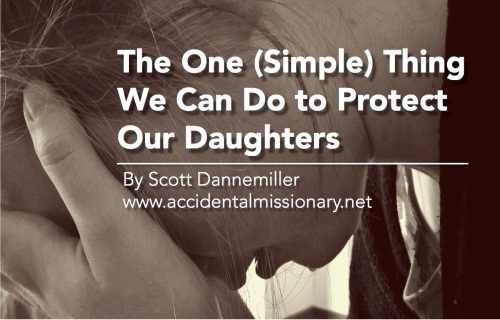 If you are a reader of mine who supports Clinton and clicked on this article hoping for a diatribe against Trump, you won’t find it here. Those have already been written.
If you are a reader of mine who supports Clinton and clicked on this article hoping for a diatribe against Trump, you won’t find it here. Those have already been written.
If you are a reader of mine who supports Trump and clicked on this article looking for a dissertation on Hillary’s faults, you won’t find that here, either. Those, too, have been written.
If you have followed this blog for any amount of time, you likely have a good idea who I supported in this election. But this article isn’t about them. The candidates.
It’s about us.
We. The People.
And no, I am not talking about “we the voters.” Voting is something We the People do. It is both a right and a privilege. And, while it is critically important, we cannot define ourselves by something most of us do once every leap year. To do so would be like judging a person based on the dish he brought to the church potluck last November, or the clothes he wore last Tuesday.
No, we are more than voters. We are 319 million unique people who have to live with each other far beyond the next four years. We are friends, neighbors, coaches, and customers. We are family, volunteers, clerks and church-goers. We are Christian, Jewish, Muslim and Atheist. All people who spent the past year searching match.com, looking for our ideal political soulmate, disheartened to find that there are only a handful of fish in the sea. And they all come with a lot of baggage.
Yes. We are a community.
While presidents and politicians hold influential positions in our government, they do not have the power to divide us. No. That power rests in our hands. Not Trump’s. Not Clinton’s. The power is uniquely ours.
We have seen ourselves use this power over the past year. We have invested in our principles at the expense of our humanity. We have defined ourselves by our positions and labeled “the others” in the same way, forming a valley between us. Each of us, well-meaning people, has picked a side and a shovel. And every time we used a scripture to support our stance or data to underscore our arguments, we removed a little bit of earth between us. Repeated thousands of times, we’ve cleared a canyon. But rather than look upon this cavernous abyss with sadness, we instead find quiet comfort in the fact that we can now lob angry grenades at one another over a rift that is deep enough and wide enough that we can avoid being hit by our own shrapnel.
But let’s be clear. We are wounded.
We are wounded any time we see someone as a position instead of a person.
We are wounded any time we see someone as a label instead of a life.
We are wounded any time we refuse to show compassion to the stranger.
After the election, some will celebrate and some will grieve. Some will believe good has won over evil. Others will feel that evil has conquered good. It will be ugly. And messy. And confusing.
But it doesn’t have to be fatal.
No matter our differences, we must commit to seeing each other as God sees us. We must be Jesus for each other. It’s an impossible job, to be sure. But it’s one worth taking. One we are called to do.
Because tomorrow, whatever the outcome of the election, decency must win.
Decency wins when we give voice to the voiceless.
Decency wins when we love the outcast.
Decency wins when we show compassion for the broken.
But even moreso, decency wins when we do the truly hard work. The work that Christ himself demonstrated.
Decency wins when we turn the other cheek.
Decency wins when we hear the story before offering judgment.
Decency wins when we love our enemies. This includes those who hurl insults at us. Those who believe the opposite of what we believe. Love is the only answer. To choose otherwise is to lose our very selves.
But how do we show this love to one another?
For one, we must see the good in others before we see the faults. This includes the political candidates with whom we strongly disagree. This does not mean that we cannot call out hypocrisy, but in doing so, we must acknowledge the hypocrisy in ourselves and work against it. For finding good in our enemies does not diminish our power. In fact, it may be the strongest testament to our faith and the most Christ-like action of all.
Second, we must commit to hearing the story of others – even those with whom we disagree. For we as humans are shaped by our experience, and you cannot truly know another person without first knowing her story. And as we listen, we must not listen to condemn or contradict, but rather, listen with our hearts, to feel what they feel, and connect ourselves to their humanity.
But most of all, to love one another we must never again give in to fear. Fear is love’s greatest enemy. Fear paralyzes our compassionate response. Fear divides, plain and simple. So may we take to heart the words of Paul, a man who lived in fear of “the other”, persecuting them with acts of self-righteousness until his eyes were opened by the grace of God.
May the God of endurance and encouragement grant you to live in such harmony with one another, in accord with Christ Jesus, that together you may with one voice glorify the God and Father of our Lord Jesus Christ. (Romans 15: 5-6 ESV)
Because, no matter the outcome, God is in control. And if we truly believe that love wins, we must never be without it. The selfless love of Christ. Tomorrow and beyond.
* If you enjoyed this post, subscribe by clicking on the link at the top of the page. Or follow us on Facebook and Twitter. And, if you’re still dying for more, pick up our book The Year Without A Purchase, (ironically) sold on Amazon, Barnes & Noble, or WJK Press.
Image courtesy of Jeff Djevdet speedpropertybuyers.co.uk/

 Unless you have been living in a doomsday bunker, you have seen the stories of people in clown costumes terrorizing neighborhoods across the United States. These folks aren’t just draping themselves in red foam noses and floppy shoes. This is a full-scale creep fest. If you need a visual, just imagine Bozo the Clown, only now he’s just had a bad chemical peel from the local aesthetician, and picked up a heroin addiction. I would post a photo here, but since an estimated 12% of the population has coulrophobia (fear of clowns), I’m afraid I’d lose readers.
Unless you have been living in a doomsday bunker, you have seen the stories of people in clown costumes terrorizing neighborhoods across the United States. These folks aren’t just draping themselves in red foam noses and floppy shoes. This is a full-scale creep fest. If you need a visual, just imagine Bozo the Clown, only now he’s just had a bad chemical peel from the local aesthetician, and picked up a heroin addiction. I would post a photo here, but since an estimated 12% of the population has coulrophobia (fear of clowns), I’m afraid I’d lose readers.







